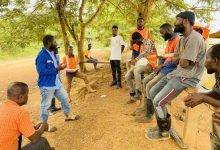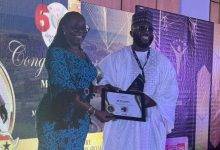The Oil Palm Development Association of Ghana
(OPDAG), a non-governmental association, has elected new national executive to
steer its affairs.
The members are Mr Samuel Avaala; President, Mr
Yaw Agyei-Agyepong; First Vice-President, Mr Issa Ourdraogo; Second
Vice-President, Mr Horatio Pitcher; Treasurer, Mr Paul Amoaning; Organiser, Mr
Mate-Kole; Secretary and Mr Selorm Quame; Executive Secretary.
Mr Avaala, who was re-elected, commended the
delegates and the entire membership for the confidence reposed in him to lead
again.
He said the Association would intensify its
advocacy role to have a policy framework that would regulate the sector.
The elections formed part of the Maiden Annual
General Meeting and National Oil Palm Stakeholders Forum, on the theme:
“Oil Palm; Agenda for Growth and Jobs.”
The two-day event brought together oil palm
value-chain actors under one roof to deliberate on the challenges facing the
sector and finding sustainable solutions to them.
Mr Ayaala said the focus would also be on
following through with advocacy and support for the Tree Crop Development Bill
to be passed for the establishment of the Tree Crop Development Authority.
He said the concept came about from realising
that countries where tree crops had become a significant contributor to the
economy had some institutional structures in place.
“In Ivory Coast, for instance, they have a
structure that is in charge of oil palm tree crop, they have one for coffee and
cocoa,” he added.
Mr Ayaala said Ghana had that sort of structure
for Cocoa and that explained why the commodity had remained resilient all these
years.
“We probably should have had it many years ago
for cotton, rubber and all the tree crops.”
The Tree Crops Development Authority, when
established, will regulate the production, pricing and marketing of tree crops,
including rubber, oil palm, cashew and shea nuts in the country.
The development of the tree crops value chain
formed part of the Government’s Planting for Export and Rural Development
programme, aimed at diversifying Ghana’s agriculture production sector and
increasing its foreign exchange earnings.
He said the Authority would have two main
functions; developmental and regulatory functions to deal with research and
development, value addition and access to financing on one hand, and regulating
to ensure that the locals were not short-changed but protected. GNA


